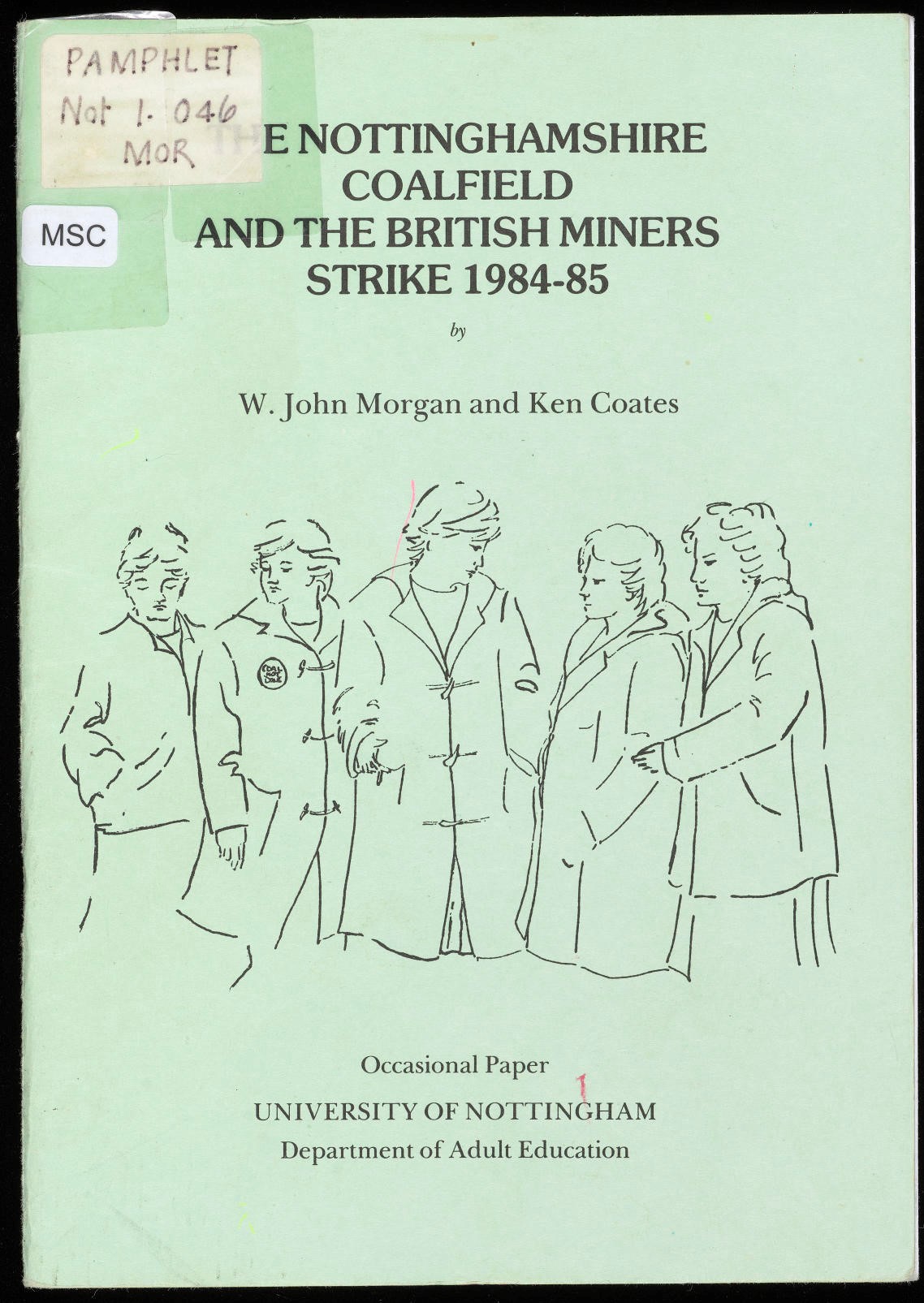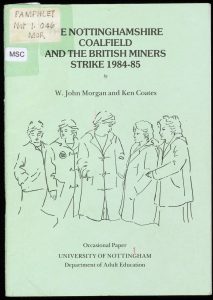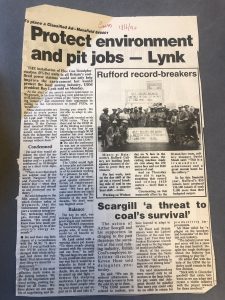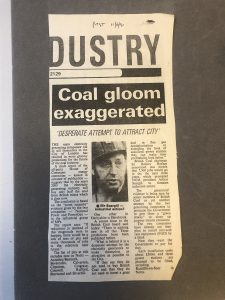
December 14, 2022, by Sarah Colborne
The Ken Coates collection – the coal mining industry and its decline in Nottinghamshire
This is a guest blog post by Law student Ceyhan Ballioglu, who undertook a placement with Manuscripts and Special Collection in 2022.
During the Autumn semester of my second year at the University of Nottingham, I had the opportunity to volunteer at the Manuscripts and Special Collections Department. Here, I was given the chance to catalogue information relating to the lifetime of Ken Coates, a pioneering politician who even taught at the University of Nottingham. Specifically, he had a role teaching within the Adult Education Department of the university. In being able to delve through a bundle of documentation, I was truly able to grasp Coates as an influential figure – yet there was a certain theme that grasped my attention: the issue of the mining and the coal industry in Nottinghamshire during Coates’ time. I was also interested in potentially seeing how this topic involved women (if at all).
I will admit that I did not know much about the state of the coal mining industry of Nottinghamshire before undertaking the placement. Yet it was when, upon delving through numerous newspaper clippings and other documentation, that I realised its significance to the people – especially Coates – when it came to pit closures. His passion for the rights of miners and coalpits – along with major themes such as fuel, energy and power – comes across starkly within his collection. He cared about the likely possibility of redundancies that many miners were facing. Indeed, one newspaper excerpt even mentioned Coates as alerting the Prime Minister at the time regarding the situation, as well as his concerns for employment levels! What really stood out to me in my handling of the archived material was his ‘international mindset’, so to speak – in the context of Nottinghamshire mining, he not only thought of the issue on a national level, but also how the EU can grant subsidies, and thus think on an external level. Indeed, Coates said himself that he wanted to gain the rights as seen in the UK’s European counterparts – and this included rights specifically appertaining to women, such as better maternity leave.
In not knowing of Coates prior to my placement, the sheer amount of documentation relating to him is astounding. He gave much attention to the coal industry in Nottingham, and was not shy to give his opinion on the proactivity (or lack thereof) of senior figures to act on the decline. He also proposed solutions – at one point he recommended suspending the number of pit closures, as it would have an impact on levels of unemployment. Threats to pits were very much real, and the widespread anger from the public and miners reflected this – and thus Coates, being a politician with actual constituents, felt such anger too. Coates also had an acute commercial awareness – he, at one point, considers the link between possible monopoly power and coal. Given the modern 21st century – where big businesses and corporations hold power in today’s society – Coates was arguably quite ahead of his time in terms of his thought and awareness.
In this same vein as unemployment and jobs, is the attention given to women. Coates, of course, looks beyond Nottinghamshire – the Collection includes information relating to places such as Derbyshire and Sheffield. What took my eye in the collection was a socio-economic examination report into the Dearne Valley, Sheffield, and how the number of female employees was significantly lower not only in the rest of South Yorkshire, but also in the UK. It further references how the, since the coal mining industry at the time was in decline, this was inextricably linked with levels of employment – while women may have not been miners, the general tension of job losses would definitely have had an impact on levels of economic activity. This is definitely something Coates would have acknowledged during his time in Nottingham, and during his time as a Labour MEP [Member of the European Parliament].

Cover of ‘The Nottinghamshire coalfield and the British miners’ strike, 1984-85’ by W. John Morgan and Ken Coates, Department of Adult Education, University of Nottingham, 1989. East Midlands Collection Pamphlet Not 1. O46 MOR

Newspaper cutting from file titled ‘EP Fuel Policy/Pit Closures (continued)’. Papers of Ken Coates KCS/ACC 1685/Box 46

Newspaper cutting from file titled ‘EP Fuel Policy/Pit Closures (continued)’. Papers of Ken Coates KCS/ACC 1685/Box 46
To conclude – from this blog post as well as my placement at the Manuscripts and Special Collections department – to be able to explore a powerful figure such as Coates is quite wonderful. More specifically, to be able to be granted such a deep insight into a significant topic (such as the decline in coal labour and mining pits) is just as illuminating.
Manuscripts and Special Collections exhibition ‘Knowledge is Power‘ features material relating to Ken Coates and runs at the Weston Gallery at Lakeside Arts until 12 March 2023. Cataloguing of Ken Coates’ papers from his work as an MEP is ongoing but a collection of articles by or about Ken Coates (KCS 3) can be accessed in the Reading Room at King’s Meadow Campus. Work is currently in progress to create a feminist archive relating to the East Midlands area, which includes some materials on the Nottingham Women Against Pit Closures campaign. An article by one of the women involved in setting up the feminist archive can be found in the June 2022 issue of our magazine, Discover.
No comments yet, fill out a comment to be the first


Leave a Reply